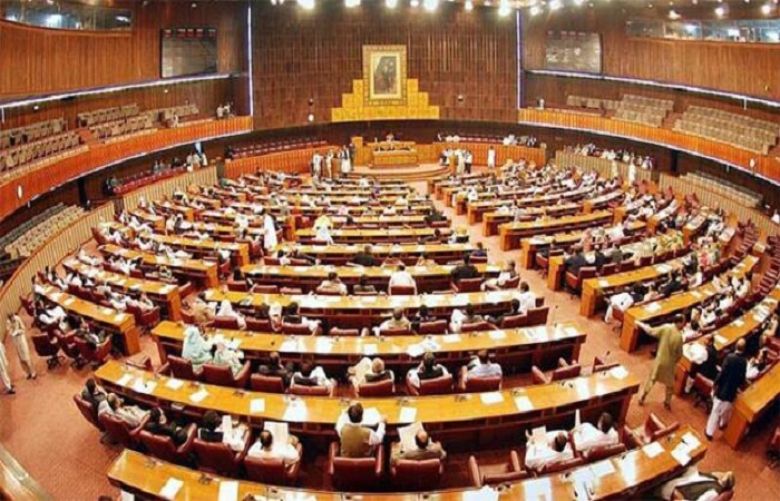The National Assembly on Monday passed Official Secrets (Amendment) Bill 2023 with a majority vote, a day after the upper house of parliament green-lighted the legislation after the coalition government removed contentious provisions.
The official secrets bill was re-tabled in the National Assembly earlier today after the legislation with controversial clauses already sailed through the lower house of parliament last week but failed to get Senate’s nod and was referred to the upper house's standing committee after it drew strong criticism from parliamentarians.
Subsequently, Senate on Sunday passed Official Secrets (Amendment) Bill 2023 by a majority vote after the government made changes to the bill, removing a clause that sought to empower intelligence agencies to carry out raids or make arrests without warrants.
Law Minister Azam Nazeer Tarar, who tabled the bill in the Senate on behalf of Interior Minister Rana Sanaullah, informed the senators that the government withdrew the provision to empower intelligence agencies to carry out raids or make arrests without warrants.
“The objection has been removed.. the arrest without warrant clause has been withdrawn,” the minister added.
He also emphasised that the revised legislation empowered the Federal Investigation Agency (FIA) to investigate individuals suspected of violating the Official Secrets Act.
He pointed out the word ‘knowingly’ had been added to a clause which in its original form was “a person may be presumed to be in communication with an enemy or a foreign agent, if he has either within or outside Pakistan visited the address”.
The main objection, he further said, pertained to the power of the agencies to arrest without a warrant had been withdrawn, adding that certain words on which the members had raised objections had also been removed.
The federal minister, however, contended that the legislation should be seen without prejudice to give protection to the military personnel and intelligence agencies people offering sacrifices in the war zones.







